Ugandan parliament should reject press bill
Dear Mr. Speaker: The Committee to Protect Journalists is deeply concerned about the proposed amendment to the 1995 Ugandan Press and Journalist Act, which is expected to be presented before parliament soon. We believe the bill would severely hamper the operations of newspapers and damage the country’s press freedom credentials.
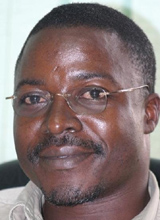
In Uganda, bill challenges press freedom
On March 24, I received an e-mail from a close friend under the intriguing subject “What…?” On opening the e-mail, I discovered my friend was not impressed by two articles in that morning’s newspapers condemning the government’s recent proposal to amend the press law and introduce new restrictions on the publication of newspapers.
At least 5 Ugandan journalists wounded covering protest
New York, March 19, 2010—At least five journalists were wounded while covering violent clashes between security personnel and protesters outside the capital, Kampala, on Wednesday. Scores of protestors and mourners came to Kasubi, a Kampala suburb, after a fire of unknown origin destroyed the historically significant royal tombs of the Buganda kingdom on Tuesday.
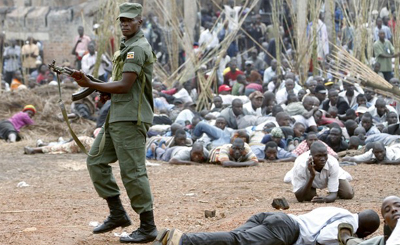
Ugandan photographers take heat after fire at royal tombs
It seemed like déjà vu. Another major protest erupts in Uganda and journalists face the wrath of authorities and the public alike. Tensions between the government and the traditional kingdom of the Baganda, the largest ethnic group based in central Uganda, flared again Tuesday evening after a fire of unknown origin ravaged the tombs of…
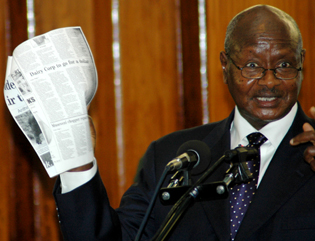
Ugandan plan would punish media for ‘economic sabotage’
Uganda’s anti-homosexuality bill has received considerable international attention, particularly concerning its harsh criminal sanctions, but another piece of repressive legislation threatens to criminalize the activities of another maligned group: the vibrant independent press in this East African nation at the confluence of Africa’s largest lake (Victoria) and the world’s longest river (Nile).
Attacks on the Press 2009: Uganda
Top Developments• Reporters attacked, harassed during Kampala unrest.• Criminal cases pile up as high court considers constitutional challenge. Key Statistic 22: Criminal cases pending against Andrew Mwenda, a top political editor.Violent protests broke out in Kampala in September when security forces blocked leaders of the traditional kingdom of the Baganda, Uganda’s largest ethnic group, from visiting…
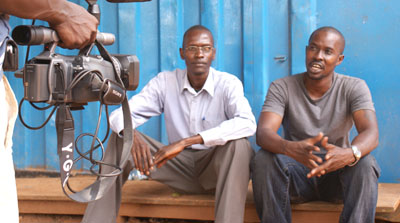
Freedom of information laws struggle to take hold in Africa
In Uganda, a ruling this week in a landmark case of two journalists seeking to compel their government’s disclosure of multinationals oil deals highlighted the challenges to public transparency just before media leaders, press freedom advocates, officials, and former U.S. President Jimmy Carter gather in Ghana next week at the African Regional Conference on the Right…

Museveni accuses two Ugandan journalists of libel
New York, February 3, 2010—An opinion column in Uganda’s leading independent newspaper suggesting parallels between President Yoweri Museveni and former Philippine leader Ferdinand Marcos led to criminal libel charges against two journalists today, according to local media reports.
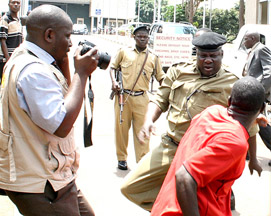
In Uganda, citizen journalists fill news gap during riots
Last week in Uganda, authorities reacted to violent anti-government demonstrations, at left, by yanking at least four radio stations off the air and banning political programming and some journalists from the airwaves. I have been covering the Ugandan blogosphere for Global Voices for more than two years. News of the violence first reached me on…
Ugandan radio stations shut; debate programs banned
New York, September 11, 2009–The government-run Uganda Broadcasting Council effectively shut down four radio stations today and Thursday, and ordered all radio stations to halt political debate programming in the wake of violent clashes in the capital, Kampala.